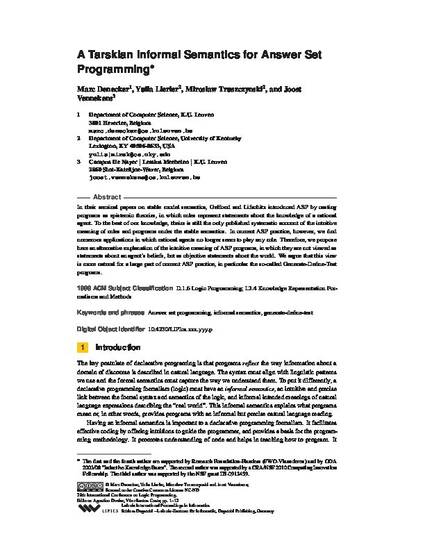
In their seminal papers on stable model semantics, Gelfond and Lifschitz introduced ASP by casting programs as epistemic theories, in which rules represent statements about the knowledge of a rational agent. To the best of our knowledge, theirs is still the only published systematic account of the intuitive meaning of rules and programs under the stable semantics. In current ASP practice, however, we find numerous applications in which rational agents no longer seem to play any role. Therefore, we propose here an alternative explanation of the intuitive meaning of ASP programs, in which they are not viewed as statements about an agent’s beliefs, but as objective statements about the world. We argue that this view is more natural for a large part of current ASP practice, in particular the so-called Generate-Define-Test programs.
Available at: http://works.bepress.com/yuliya_lierler/8/

© Marc Denecker, Yulia Lierler, Miroslaw Truszczynski and Joost Vennekens; licensed under Creative Commons License NC-ND 28th International Conference on Logic Programming.